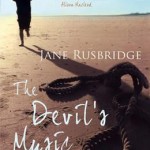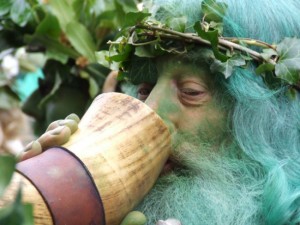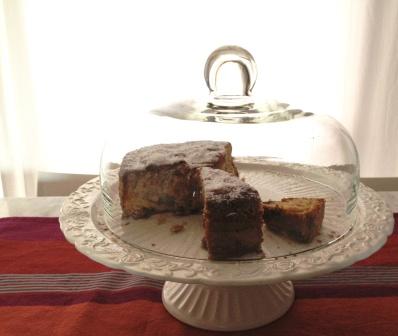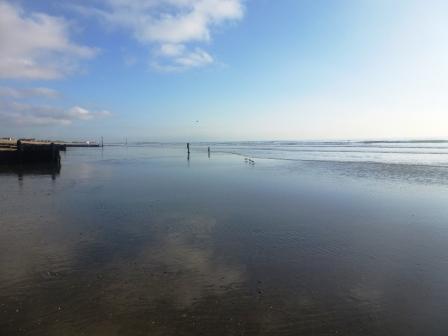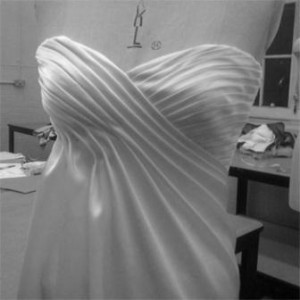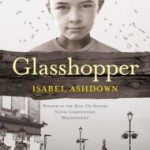This blog is having a May Day Holiday. Enjoy this Green Man c/o The Company of The Green Man.
Category Archives: Uncategorized
Shake out those shelves
Of course you want more book suggestions to feed your habit…
You want a courageous heroine – here’s a baker’s dozen of them:
- The Wolves of Willoughby Chase – get two for the price of one – Bonnie and Sylvia.
- My Name is Mina – Mina is imaginative, fragile and full of creative courage.
- Jane Eyre – “I am a free human being with an independent will.” Enough said.
- Chantress – Lucy, who finds her own voice in the midst of upheaval. A remarkable story full of the truth of creativity.
- Matilda -“I’m wondering what to read next.” Matilda said. “I’ve finished all the children’s books.” Roald Dahl at his best.
- The Ransom of Dond – Darra shows the courage of love in a beautiful myth.
- Coraline – for goodness’ sake, read the book. She did not need a male sidekick to face the Other Mother.
- A Face like Glass – Neverfell, with her honesty and her expressions take on Caverna. A marvellous fantasy, with depth – and cheese.
- The Visitors – deafblind Adeliza Golding is no Victorian victim!
- The Girl who Circumnavigated Fairyland – Once you’ve met September, it’s hard to forget her.
- Charlotte’s Web – I never thought I could love a spider.
- The Book Thief – ah lovely Liesel, naughty and curious and so alive.
Escape to the country?
Each of these is so evocative of the place you will either want to dash there immediately – or avoid it like a sink-hole.
- Watership Down – Hampshire chalk uplands
- The Stone Book Quartet – Cheshire stone country
- Snow falling on Cedars – Puget Sound, Washington State
- Cold Comfort Farm – Deepest Sussex
- The Whale Rider – Maori New Zealand
- The Summer Book – Finnish Archipelago
- Greenvoe – Orkney
- The White Darkness – Antarctica
- The Shipping News – Newfoundland
- Sea Glass – New Hampshire coast
- Waterland – the Fen Country
- The Kingdom by the Sea – Northumberland coast
New beginnings – and a competition
I have over the years become conditioned to feel that September, the start of the academic year, is a new beginning. Although now I am a writer not a teacher, I still get a little buzz as Summer segues into Autumn.
This year even more so.
I am starting a whole new writing-related enterprise. We have bought a lovely 1950s house, one road back from the glorious beach here at The Witterings. It’s large and relaxed, and with some adaptation, it will make a superb writers’ retreat.
I believe there is a demand out there for a peaceful place by the sea where you can be spoiled rotten and get on with your writing. A place where you don’t need to worry about meals and laundry and general busy-ness. A place where a refreshing seafront stroll is two minutes away and the loudest thing is the seagull chorus. A place where tea and coffee and cake are always at hand.
And a jolly sight more personal, friendly and cheaper than a hotel.
But I do have a problem.
It doesn’t have a name. Number 34 Marine Drive doesn’t cut it for me. It doesn’t say ‘here is the perfect seaside venue to complete your masterpiece/write your dissertation/compose the best poems ever’. How about you?
So I am offering a two-nights-for-the-price-of-one deal for the person who comes up with the best name – and a 10% discount for everyone who enters a suggestion. We plan to be up and running by Easter 2014 – and the prize/discount will be valid for a poetical year-and-a-day from our official opening.
To enter:
- DM @lockwoodwriter on twitter – you’ll need to follow me first if you don’t already OR
- visit the K.M.Lockwood page on Facebook and leave a message ( it really needs some friends) OR
- email kmlockwoodAThotmail.co.uk with your suggestions
I am so looking forward to your suggestions – for names or any other comments.
PLEASE NOTE No-one’s email or anything else will be used by anyone other than me.
UPDATE
The competition will close on the 30th September. There may well have to be a vote-off.
Form follows function
As you may know from last week’s blog post, I was very taken with Marcus Sedgwick’s plot-driven approach to writing. Not that I wasn’t well-taught about structure by Greg Mosse on the West Dean MA, but I so enjoyed hearing it from another respected source. See Addy Farmer’s valuable piece for more on this.
Well now I am officially a Graduate Editorial Assistant – and that structure stuff really counts. There is no point in me line-editing the students’ work, however much they beg for it – and however easy I find it to do.
I’m going to use a dressmaking analogy to show what I mean. This comes to mind from my work on The Wedding Ghost which is currently in its first draft, and it applies just as much to me.
It is oh-so-easy to tinker with the embroidery, to reposition the sequins and if I’m honest, hope that all the sparkly and shiny things will distract the reader from the fact that it just isn’t working. No amount of beautiful metaphor or carefully wrought sentences full of euphony will cover up a great gaping plot hole.
I might have to unpick a seam or rearrange the darts across the bust and then what happens to all that bugle-beading? Far more important to deal with the underlying form first.
There will be those of you reading this who know just how easily distracted by shimmery surface detail I am and how I struggle with synopses, summaries and the like. I’d much rather tinker with the fiddly little bits.
But my job is to make it work, to make the story the right shape. The good thing is that this craft approach means it is irrelevant whether I’m dealing with some chic little cocktail dress, a witty take on contemporary life or the sideless surcoat of an historical romance. It’s the fit that counts.
If your current work-in-progress were an item of clothing, what would it be?
‘Psst – wanna do something illegal?’
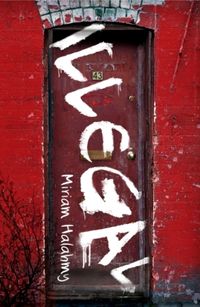 Truth told, Kathy Evans didn’t quite put it like that – but I did get the chance to go with her to the launch of Miriam Halahmy‘s ‘Illegal’ at Blackwell’s Bookshop, Portsmouth University . She mentioned it on Facebook and I blagged a lift – she is a delightful chauffeuse, I have to say (or I might have to go in the boot in future.)
Truth told, Kathy Evans didn’t quite put it like that – but I did get the chance to go with her to the launch of Miriam Halahmy‘s ‘Illegal’ at Blackwell’s Bookshop, Portsmouth University . She mentioned it on Facebook and I blagged a lift – she is a delightful chauffeuse, I have to say (or I might have to go in the boot in future.)
As a writer, you don’t tend to get out a lot. It’s a solitary business – so a bit of human contact is good. Not only that but the outside world provides its own stimulus. Even a change of scenery can prompt better writing – and going anywhere near a place of learning – well…
There is more. I was glad to see Anita Loughrey and Amanda Lillywhite there – more SCBWI pals. Regular readers will know how much I value the fellowship that SCBWI offers. Not only do they understand the obsession you have, they share it too – and encourage you in your lunacy. That’s some support network.
I hope Miriam felt suitably encouraged.
It isn’t just about the friendships, though. There is also a good chance of meeting agents and publishers at launches. You might build up other contacts such as publicists – and it does no harm to be seen.
However, it was when Miriam read the beginning of ‘Illegal’ that I found the most personal reason to be there. People from a fair old variety of decades and types stood and listened. They went into that little world that Miriam had squashed inside the pages of her book. It wasn’t a world that I could make. It wasn’t marketed at the readers I write for – but the story still existed. And that’s what mattered to me – one day it could be me. People might want to enter my little worlds.
I need that hope to hang on to.
Thank you, Miriam and Kathy.
Writer for Sale or Rent
Vintage 1961 model in good working order
- includes brand new MA (Creative Writing) from West Dean College
- at home with Junior School children ( has previous as teacher)
- however it would be fair to point out disturbing darker side to personality
- addicted to anything maritime, the weirder aspects of folklore and ghost stories
- excellent creator of imaginary worlds but definitely not streetwise
- needs direction – middle grade, tweens or teens?
- worryingly keen on dressing-up
- grammar, punctuation & spelling in good condition
- has demonstrated writing stamina
- Yorkshire background – will work for tea and crumpets
All suggestions considered.
Cooking the books
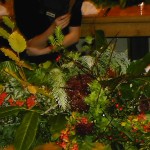 Those of you who have been on Arvon courses will know that taking part in the cooking is integral to the Arvon experience. At The Hurst, I was a member of the Thursday Singing Crew and whilst stirring my onions and belting out Songs from the Shows, I thought about the creative process.
Those of you who have been on Arvon courses will know that taking part in the cooking is integral to the Arvon experience. At The Hurst, I was a member of the Thursday Singing Crew and whilst stirring my onions and belting out Songs from the Shows, I thought about the creative process.
As I see it, when you get ideas for a book and you do research, you’re looking in the fridge and the larder. You dig out the things you have in store, your experiences, your memories. Maybe you pick up something new. You assemble all your bits like the TV chefs and have a good think.
You might already know the shape of the book, the form it will take: you’d know if you intended to make a soup or a sorbet. Likewise, you’d have an idea of genre be it a ghost story or a spy thriller. Sometimes the best things come from fusion – anyone for supernatural romance or a sci-fi western? Whatever it may be, you’d need some idea of the conventions if only to subvert them.
Some mixes might have limited appeal, like snail porridge or a robotic bodice-ripper but throwing everything in results in a mish-mash, a pot-boiler, which pleases no-one. You know the kind of bottom of the fridge stir-fry, or plot with far too many elements thrown at it. The Venetians have an expression:
non piu di cinque ( no more than five)
not a bad idea in writing as well as in your risotto. The more you add, the more it diminishes the whole.
But that doesn’t mean the judicious use of herbs and spices doesn’t have its place. Just a little of something unexpected can lift the ordinary into first class: chocolate in your chilli; an astonishing image at a critical moment. It all comes with effort and odd bursts of inspiration.
At first, you stick to the recipe, read every How-to. Then you get bolder, take a few risks, produce the weird and the inedible. Only after a great deal of experimentation, maybe with the help of someone more experienced, do you learn how to handle it yourself.
Finally, I hope, you reach a stage where your work pleases your taste and people like what you do. You create for yourself, using your own intuition as a guide but not ignoring thousands of years of tradition. You have a style, a voice of your own and, although people may adapt what you’ve done, you make something distinct and original.
Like a soufflé, there may be lots of work done to create a short-lived moment, but at best, something may linger in the memory of many people. We all need things to sustain us.
No right to be published.
Today ( Thursday the 21st July) was one of the periodic meetings of the SCBWI Chichester twig. We were a mixed bunch: Penny already published, Kathy agented, me with a shiny new Post Graduate Diploma and Neil right at the beginning of his journey. One thing we have in common: we want people to read our work – otherwise we are sending words into the void.
The purpose of our little group, as I see it, is fairly straightforward: mutual support. There is a great sense of energy, which I find particularly stimulating, and plenty of encouragement.
Let’s look at that last word: encouragement. It’s not a blanket ‘there, there, dear, everything you write is lovely and it’ll soon be published’. It means inspiring with valour, the brave spirit in your heart. Going by some of the posts I’ve read about the state of publishing, we all need valour. We need valour to put our work out there, we need valour to revise it for the umptieth time, we need valour to deal with the rejections which are an inevitable part of our chosen path.
This is where the wider pool of SCBWI -BI and our other writer-support networks come in. We need the on-line stimulus; the face-to -face honesty of critique meets; the CPD of conferences, workshops and retreats. It’s good to know there are others on our side, others who have made it in one way or another, others who can help.
But all this only works if we can give and take in the right spirit. If we are open to analytical and purposeful criticism, if we take care how we handle our colleagues’ feelings, then we will grow as a group. And that nurturing, which may include some pretty tough love at times, will help us all along the road. It will not guarantee a print run. That’s down to us and fate.
I’ll finish with a quotation from Thomas Edison (thank you R. J. Ellory)
‘Many of life’s failures are people who did not realise how close they were to success when they gave up.’
Our job is to keep our pals going.
Three for tea

Today was the inaugural meeting of Chi-SCBWI ( Society of Children’s Book Writers and Illustrators – Chichester Branch – or more of a twig). Present were the ever busy and talented Kathryn Evans; published author, Chichester Creative Writing MA graduate and kindly cat carer Penelope Bush; and me. Due to a car disaster, the amazingly prolific Elizabeth Dale was there only in spirit this time.
Our venue was St Martin’s Organic Tearooms. I had never been in this ancient and frankly eccentric building before. Being early, I spent a few happy moments on the rickety staircases and across the amiably sagging floors just looking. It was delightfully quirky: individual and inspiring.
My colleagues arrived. They rather suited the building – distinctive and wonderfully themselves . One published (big in Germany, I believe), one agented and me the one setting out: yet all of us with something in common. We discussed our aims for the group – social, supportive and a safe place to let off steam. Despite our different lives, we were all aware of the potential isolation of our craft.
OK nowadays we have Twitter and Facebook and all that stuff yet it is all too easy to dwell on things, to imagine, to read subtext in emails that just isn’t there. But face-to-face – lovely. Genuine warmth and hugs and gentle lifts of the eyebrows that convey so much – and oh-so-endearing moments of uncertainty and mutual support. Not pushing a brand or a self-promotion opportunity. Great – energetic people are energising.
More of the same please- 10 am Thursday 21st July, St Martin’s Tearooms, St Martin’s Street Chichester – love to see more artists and illustrators there.
From the heart
Thursday 5th May 2011 I had the pleasure of attending a fundraiser for StonePillow , a local charity working with homeless people. I went to hear readings from three very local writers: Isabel Ashdown, Jane Rusbridge and Gabrielle Kimm. The quality of the extracts was excellent – and it gave me to thinking why.
The three main works were quite distinct – though all had an historical element. Both ‘Glasshopper’ by Isabel Ashdown and ‘The Devil’s Music’ by Jane Rusbridge take place in England in the recent past, whereas Gabrielle Kimm set ‘His Last Duchess’ in 16th century Italy. But it wasn’t the vivid recreation of a previous era that captvated: it was the emotion.
All three authors read with a clear sense of the emotion in their work. Speaking to them afterwards, it became clear that despite the distance between the reading and the publication, the feelings of their primary characters still animated the writers. And this in turn engaged their listeners.
This is critical to me as both reader and writer. I may have no idea how banquets were conducted at the Court of Alfonso d’Este – but I can connect with the tentative feelings of a young bride. Similarly, I can identify with the experience of a frightened boy or an embarrassed teenage girl in any time, location or culture because of their emotions. Emotions link us to all humans: and the single emotional thread was the first key concept Greg Mosse taught us on the Creative Writing MA.
These writers, and many more who engage with their readers, portray emotion with clarity and honesty. They use dialogue and action to reveal their characters’ emotional lives. Everyone experiences anger, love and loss – and writers show these because they are inherent to the human experience. They don’t use emotions to draw the reader in – they experience the emotions of their characters and record them.
Therefore a creative writer shows anger, love and loss through distinct voices. At this reading, I had the direct experience of hearing those voices and the physical emotion in them. As a reader, you ‘hear’ the voice of the characters in your head – and you also have a sense of the author’s voice. It is the intensity of feeling in the writer’s voice that draws us into their fictional world.